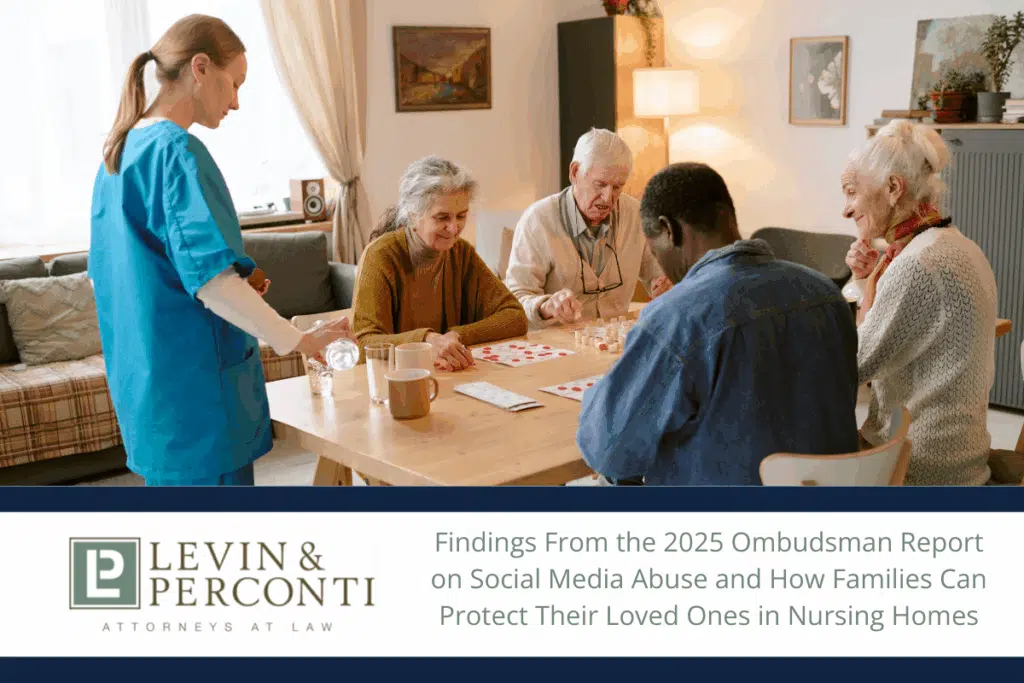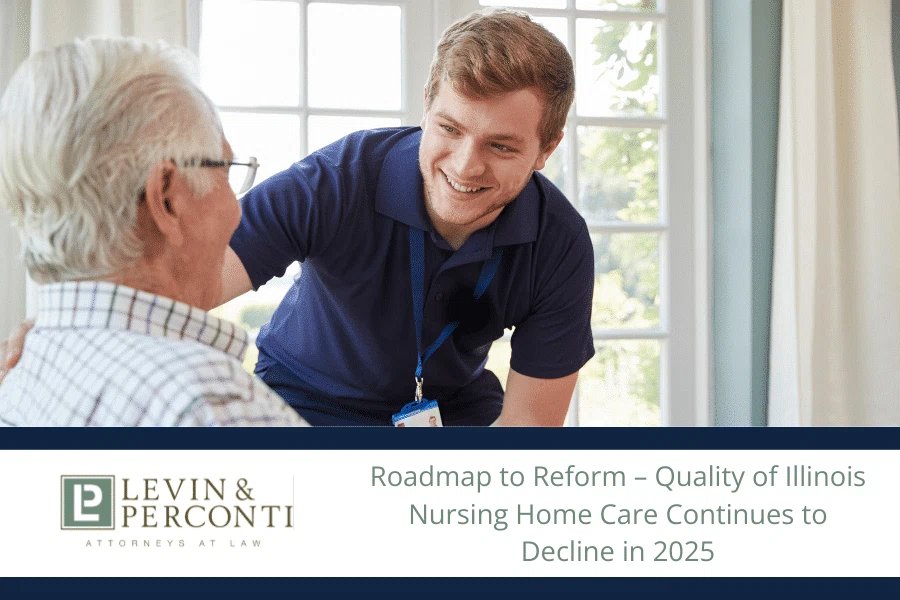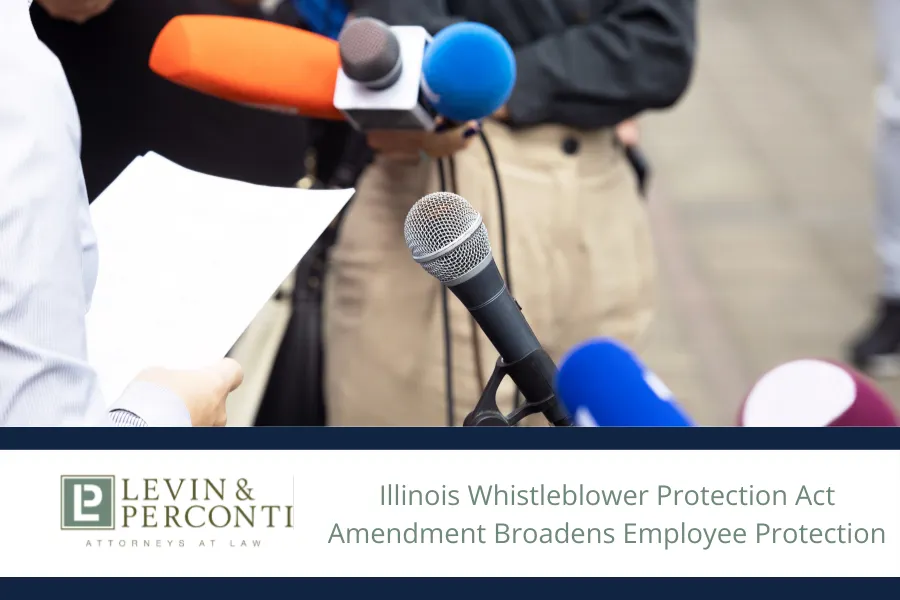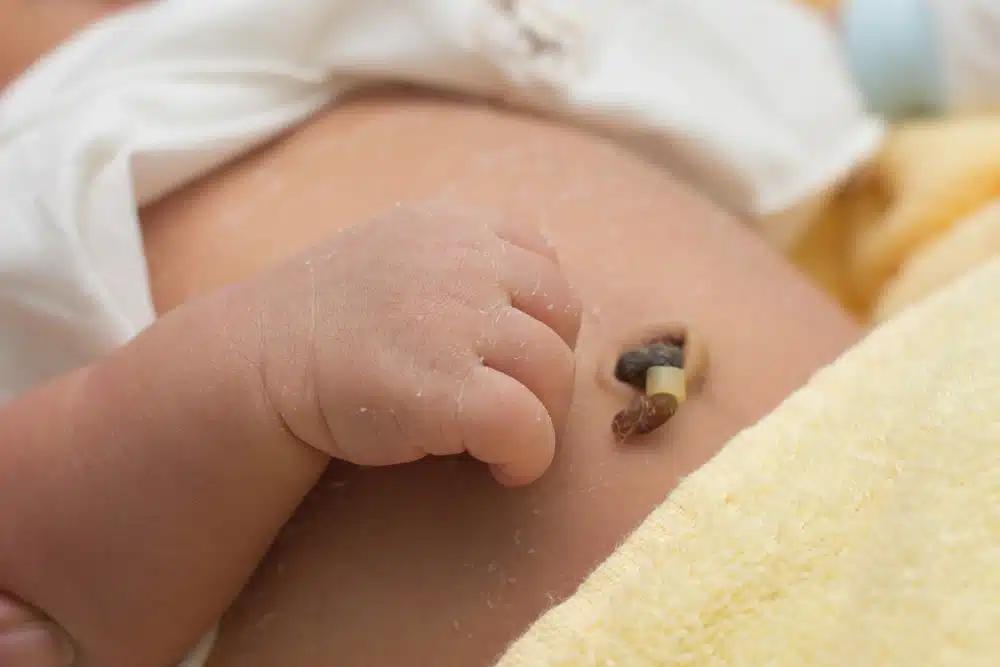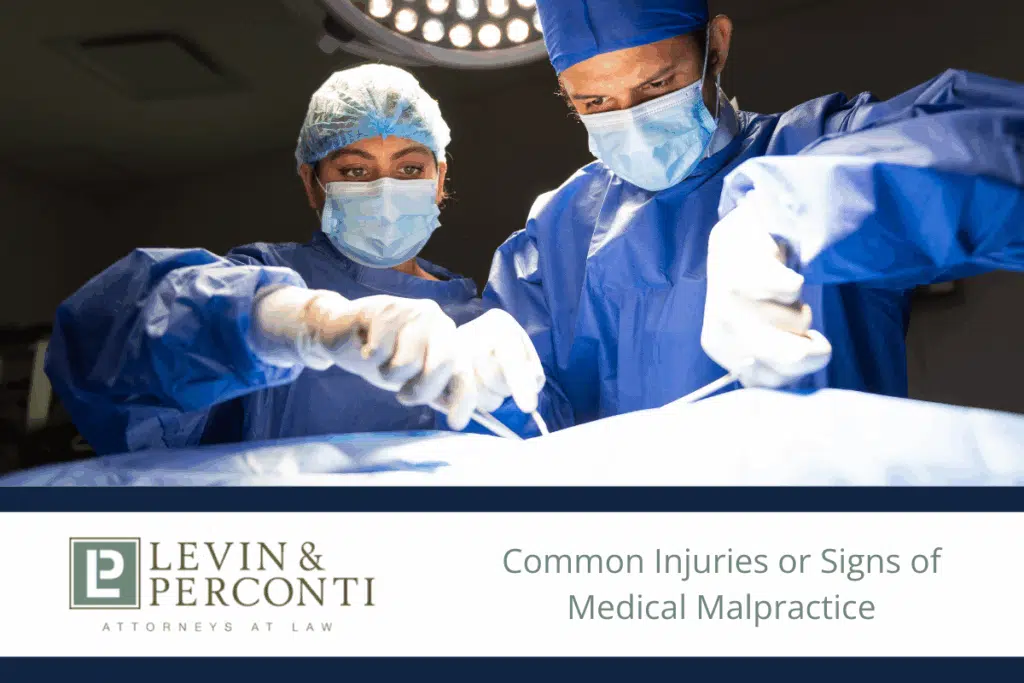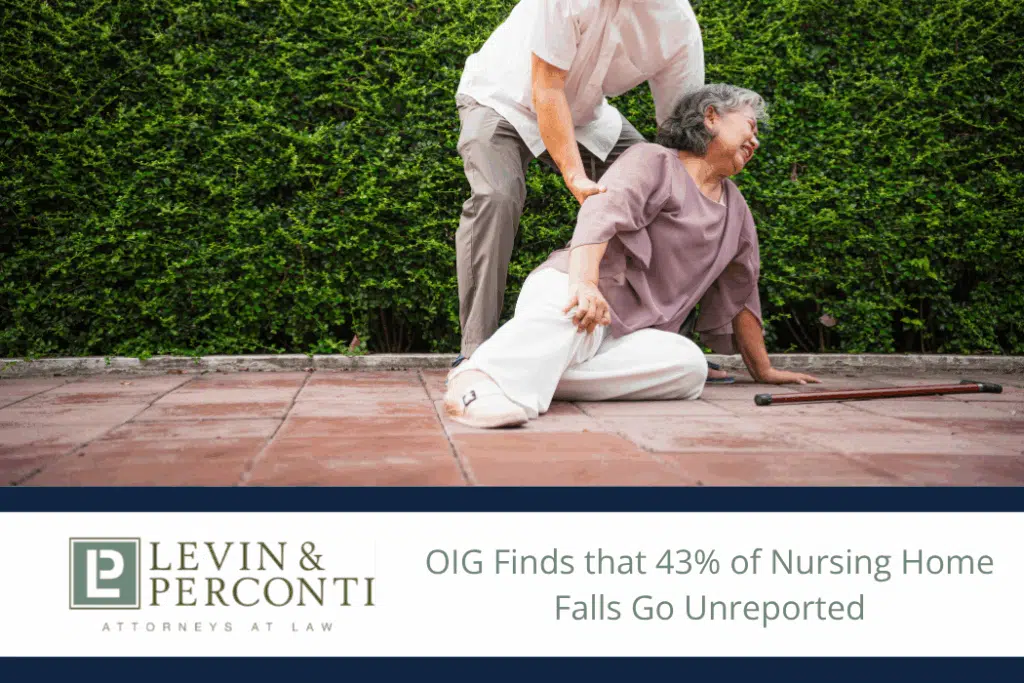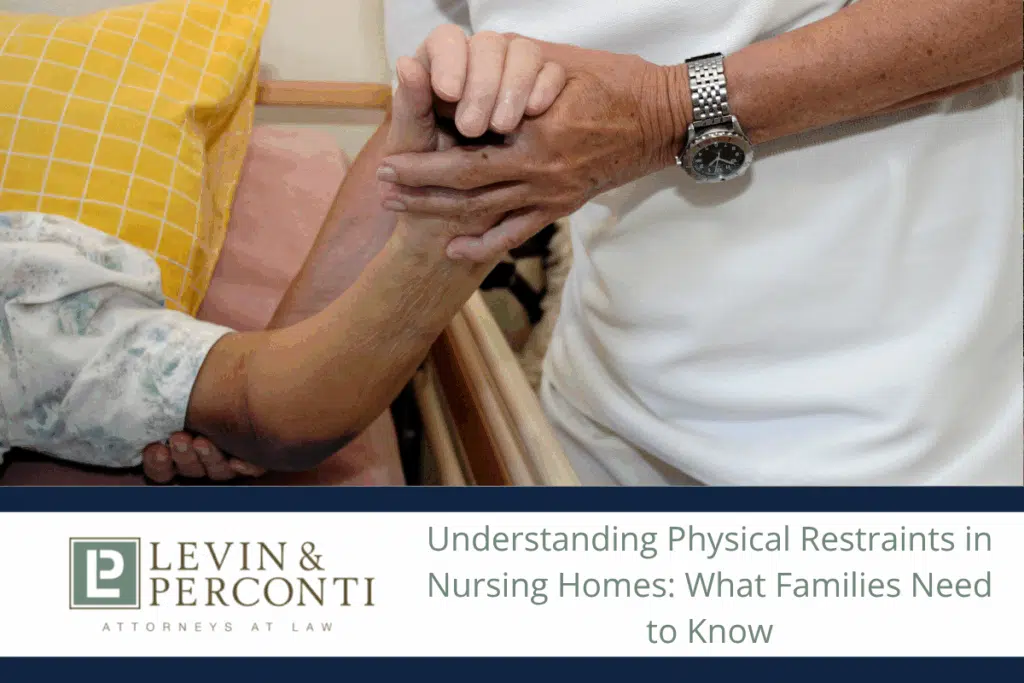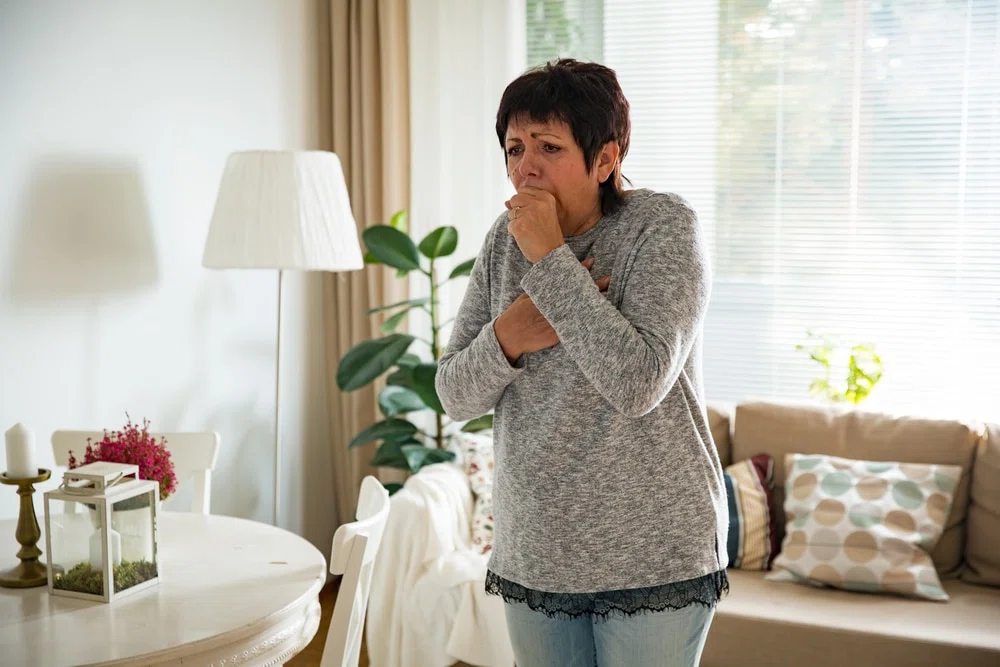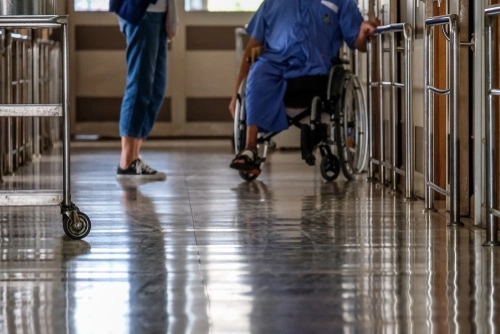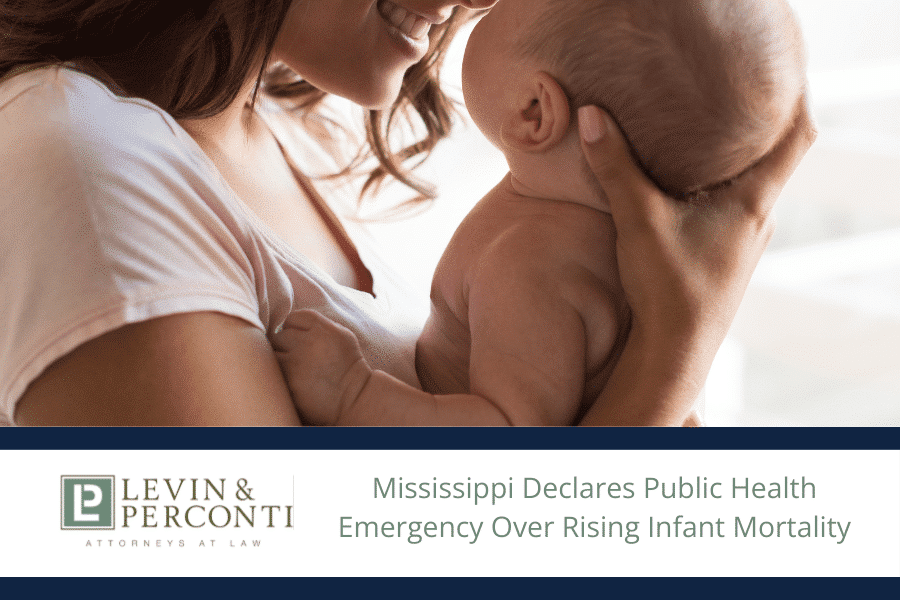MRSA in Nursing Homes

Nursing homes, which are long-term care facilities responsible for providing personal and medical care for residents, are often hotbeds of infections and communicable diseases. The close quarters, coupled with the compromised immune systems of many residents, make conditions like MRSA unfortunately common.
Home | Nursing Home Abuse & Neglect | MRSA in Nursing Homes
MRSA may be preventable, but if it’s left untreated, it can cause significant health complications for those affected. If your loved one contracted MRSA in a nursing home, you may have grounds to file a claim. The attorneys at Levin Perconti are experienced in cases of nursing home neglect. Call us today to discuss your case.
What is MRSA?
Methicillin-resistant Staphylococcus aureus (MRSA) is an infection caused by staph (Staphylococcus) bacteria, a prevalent strain of bacteria that about one in three people have on their skin. Staph is generally harmless, but if it enters the body, usually through a wound, it can cause a staph infection.
If a staph infection is left untreated, it can spread and cause:
- Skin, wound, or blood infections
- Pneumonia
- Sepsis
The complications of staph infections can be fatal. Staph infections are most often treated with antibiotics, but some strains of staph, including MRSA, have developed antibiotic resistance, rendering this treatment ineffective.
How do people contract MRSA?
MRSA infections are most common in people who are either housed in or employed by a healthcare facility. This bacterium is most often spread when residents or workers touch unclean surfaces or don’t wash their hands often enough.
Sometimes, the presence of MRSA may indicate neglect in a nursing home or other long-term care facility.
The Prevalence of MRSA in Nursing Homes
Although MRSA is found in hospitals and other types of health care settings, individuals who have weakened immune systems are more susceptible to it. Therefore, the chance of contracting MRSA and other types of staph bacteria may be higher in nursing homes than in other medical facilities.
Additionally, elderly individuals may have a long history of taking antibiotics, and their bodies have developed a higher degree of resistance.
What causes MRSA in nursing homes?
MRSA is more likely to develop in people with weakened immune systems, a high degree of antibiotic resistance, and certain co-occurring health conditions. It is a serious threat to people who:
- Have had surgery or undergone dialysis
- Use invasive medical devices like ports or catheters
- Have open wounds on their body
These conditions are not the only risk factors for MRSA. People who already have staph bacteria on their skin or in their noses may be more likely to develop a staph infection.
While 33 percent of the population is colonized with staph — meaning that bacteria are present but are not causing an infection — approximately 1 percent is colonized with MRSA.
What are the symptoms of MRSA infection?
These infections are usually minor but can quickly progress to a severe situation if left untreated. MRSA can often cause a bloodstream infection that is difficult to treat.
Common MRSA and staph infection symptoms include:
- Chest pain and shortness of breath
- Chills and fever
- Fatigue or lethargy
- Headache or muscle aches
Early signs typically include a rash or red, swollen, and tender patches on the skin. When a MRSA infection occurs at the site of a wound or where a medical device is inserted, there may be pus drainage, warmth and redness, or a skin abscess.
MRSA is often detected through a culture of the wound, a biopsy, or a swab. Once an infection is identified, a doctor will recommend a course of treatment.
How is MRSA treated?
The treatment depends on how advanced the case of MRSA is. Those who have it may be isolated from other patients to reduce the chances of the bacteria spreading. If the infection is localized to the skin, a physician may simply drain the abscess and treat the skin.
However, more serious MRSA infections are treated with certain types of antibiotics, including:
- Vancomycin
- Trimethoprim-sulfamethoxazole
- Linezolid
Unfortunately, if an individual develops complications such as bloodstream infection, or if the above treatments are unsuccessful, they may be transferred to hospice care and placed on IV medications and supplemental oxygen. Severe MRSA infections may lead to kidney failure, which requires dialysis and can be fatal.
The life expectancy prognosis for nursing home residents with MRSA is complex, but unfortunately, some residents develop MRSA-caused sepsis, a condition that is fatal for about 1/3 of patients.
If infections travel deep into the body and enter the bones, lungs, or bloodstream, the illnesses that develop (commonly sepsis and pneumonia) are often fatal.
Preventing the Spread of MRSA in Nursing Homes
Because of the susceptibility of nursing home residents and the high degree of spread of MRSA, precautions in these facilities should be rigorous.
Good hygiene for both caregivers and patients is critical, including washing hands with antimicrobial soap and frequent use of hand sanitizer. Personal care items, including towels, should not be shared among residents.
All medical equipment, both shared instruments and residents’ personal devices, should be cleaned frequently and disinfected. Residents’ wound dressings should be changed regularly and covered with clean, dry bandages. Caregivers should check these wounds regularly for signs of a MRSA infection.
Staff members should use gloves to reduce skin-to-skin contact.
Contact precautions when caring for patients who have MRSA or are at a higher risk are essential. All rooms should be cleaned regularly and special attention paid to surfaces in common areas or handrails, where staph bacteria can spread more easily.
Simple steps can be quite effective in reducing the spread of not just MRSA and other bacteria but also strains of viruses. Nursing home owners and operators must educate their employees on proper cleanliness and safety protocols and take steps to ensure all caregivers follow them.
Has your loved one contracted MRSA in a nursing home?
Unfortunately, despite the precautions, the spread of MRSA in nursing homes is a sad reality for many residents and caregivers. Negligence and carelessness in nursing homes, coupled with a lack of oversight, can quickly lead to a facility-wide outbreak, endangering the health of many people.
Did your loved one suffer complications from MRSA in a nursing home? In that case, you may be able to file a claim for damages on their behalf, including covering their medical bills, pain and suffering, and other emotional trauma from the neglect.
The Levin & Perconti legal team can help. Contact us today for a free consultation about your nursing home abuse case.
Testimonials



Legally Reviewed by

Read Bio
Since 1976, Steve Levin has been dedicated to helping people injured by others’ negligence. He is one of the first attorneys in the U.S. to prosecute nursing homes for abuse and negligence. He’s also helped write new legislation that governs the operation of nursing homes, including the Illinois Nursing Home Care Act. Moreover, Levin & Perconti has obtained the top three jury verdicts in nursing home negligence cases in Illinois.
Related Pages
Notable Results
for failure to properly read pap smears, resulting in the misdiagnosis of cervical cancer and eventual death of a 35-year-old mother of three children.
for failing to biopsy a known breast tumor, resulting in the delay of diagnosis of breast cancer, causing death.
for failing to perform an annual pelvic exam, which resulted in the untimely diagnosis of ovarian cancer.
Related Blogs
